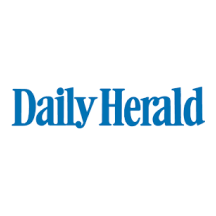By Robbie Sequeira, Stateline.org
When Siri Fiske founded the Mysa Microschool in Washington, D.C., in 2016, there wasn’t a widely accepted term for her small, one-room schoolhouse model.
Now, the school is referred to on its website as one of the first microschools in the nation, and Fiske has seen a growing microschool movement since the COVID-19 pandemic.
In the five years since remote schooling amid pandemic-era lockdowns, microschools and homeschooling have emerged as increasingly popular alternatives to traditional public and private models. Smaller class sizes, individualized classrooms and lack of standardization are an appeal to parents, Fiske said.
“There’s this idea that people who open microschools are doing it for cultish or religious reasons, and there’s a misconception t

 Daily Freeman
Daily Freeman

 The Grand Rapids Press
The Grand Rapids Press Gilbert Independent
Gilbert Independent WSMV 4 Nashville
WSMV 4 Nashville The Texas Tribune
The Texas Tribune Raw Story
Raw Story Daily Herald Sports
Daily Herald Sports CBC News World
CBC News World America News
America News IMDb Movies
IMDb Movies